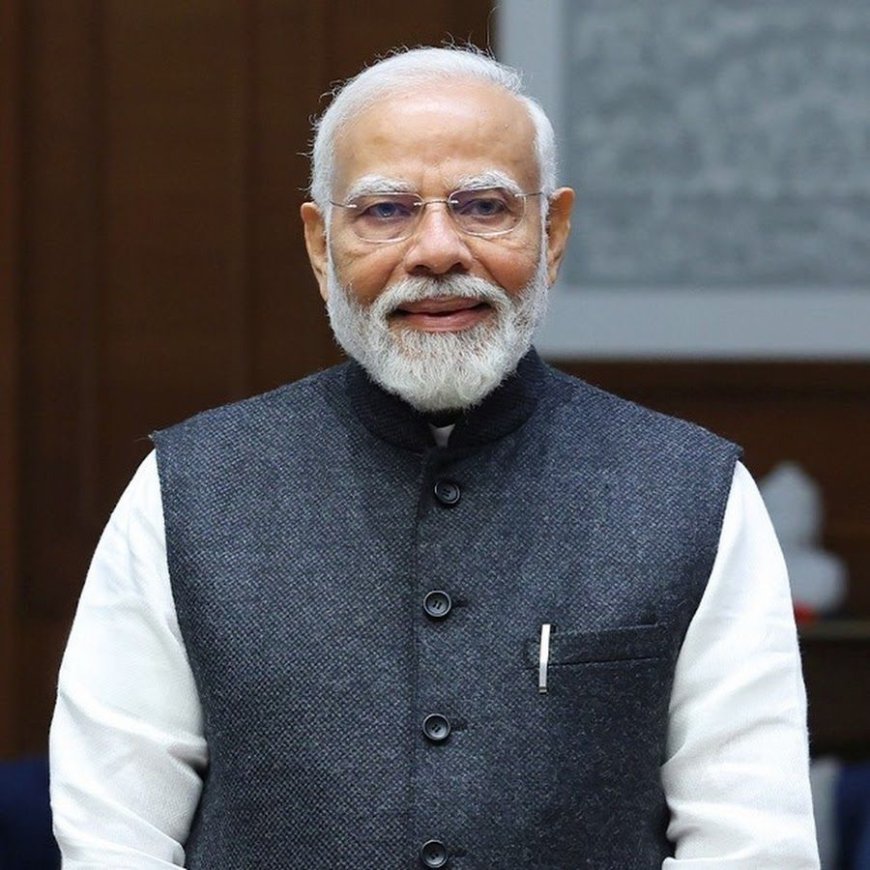Modi Demands Law to Oust Jailed Top Leaders
PM Modi urges a new law to oust jailed top leaders, aiming to curb corruption, ensure accountability, and strengthen Indian democracy.

Introduction
In the dynamic landscape of Indian politics, one of the most debated proposals has emerged from Prime Minister Narendra Modi, who has called for a law to oust jailed top leaders from active politics. This demand has generated widespread discussions among political analysts, legal experts, and citizens. The move is viewed as a step toward strengthening democracy, ensuring accountability, and reinforcing the principle that no individual, regardless of their political stature, should be above the law.
Historical Context
India’s political history has witnessed numerous leaders who, despite facing serious criminal charges or even imprisonment, continued to hold office or wield influence over governance. From corruption scandals to criminal misconduct, many high-profile politicians have remained active in politics even after being convicted.
Past cases such as the Emergency-era arrests, the fodder scam involving Lalu Prasad Yadav, and multiple corruption cases against other senior leaders highlight how deeply entangled the Indian political system has been with issues of accountability. Although the Representation of the People Act, 1951, disqualifies convicted politicians under certain provisions, loopholes and prolonged judicial delays often allow leaders to retain power. Modi’s demand for a stricter law seeks to address these long-standing gaps.
What Exactly Did Modi Demand?
The Prime Minister has pressed for the introduction of a legal framework that would categorically prevent jailed leaders from holding political office or influencing decision-making. The central idea is to:
-
Disqualify leaders immediately upon conviction for serious crimes.
-
Restrict participation in elections until they are cleared by the judiciary.
-
End dynastic influence, where family members or associates control power when the main leader is jailed.
The proposal underscores the need for ethical politics, free from the dominance of individuals who misuse authority despite being under judicial scrutiny.
Reasons Behind the Demand
The reasons are multi-faceted and go beyond immediate political rivalry:
Cleansing Politics – To restore public faith in governance by ensuring convicted individuals cannot make laws for the country.
Curtailing Corruption – Prevent leaders facing corruption charges from continuing to control party funds and decisions.
Strengthening Democracy – Establishing the principle of equality before the law.
Reducing Criminalization of Politics – India has witnessed a rising number of MPs and MLAs with criminal backgrounds. This law seeks to halt that trend.
Updates and Current Developments
The proposal has not yet translated into a formal bill in Parliament, but discussions within the political ecosystem suggest increasing momentum. Legal experts and constitutional scholars are debating how such a law can be framed without violating fundamental rights.
The Supreme Court has previously intervened in related matters, mandating the disqualification of convicted legislators. However, Modi’s demand pushes for a more permanent and stringent law, leaving less room for manipulation or delay.
Significance and Key Factors
-
Public Trust: Enhances the credibility of the political system.
-
Global Image: Strengthens India’s position as the world’s largest democracy.
-
Legal Clarity: Establishes uniform rules for all political parties.
-
Ethical Standards: Promotes cleaner leadership for future generations.
Advantages and Disadvantages
Advantages
-
Ensures accountability in politics.
-
Discourages corruption and misuse of power.
-
Encourages younger and cleaner leadership to emerge.
-
Aligns with global democratic practices.
Disadvantages
-
Risk of misuse against political rivals through false cases.
-
Potential conflicts with the principle of “innocent until proven guilty.”
-
Could lead to instability if multiple top leaders are simultaneously ousted.
-
Requires robust legal safeguards to prevent arbitrary application.
Positive and Negative Implications
Positive:
-
Strengthens democratic values.
-
Reduces dominance of tainted leaders.
-
Encourages ethical governance.
Negative:
-
May polarize political discourse further.
-
Could be seen as a political weapon if not implemented fairly.
-
Implementation challenges in a diverse democracy like India.
Final Thoughts and Conclusion
The demand by Prime Minister Narendra Modi to enact a law ousting jailed top leaders is both bold and controversial. It reflects the urgent need to address the criminalization of politics, which has plagued India for decades. If enacted thoughtfully, with safeguards to prevent misuse, the law could redefine political accountability and inspire public trust in governance.
However, the move also raises questions about balance—between justice and political rivalry, between accountability and rights. Ultimately, the success of such a law will depend on transparent implementation, bipartisan support, and judicial oversight.
In conclusion, this proposal could mark a turning point in Indian politics, shaping a future where leadership is synonymous with integrity rather than corruption or criminal influence.

 Ellofacts
Ellofacts 





